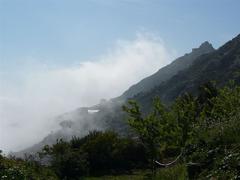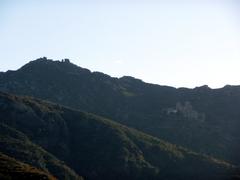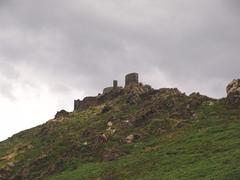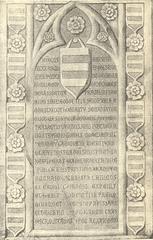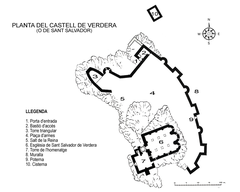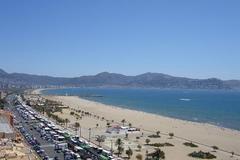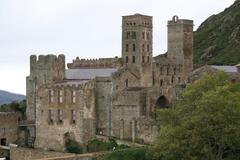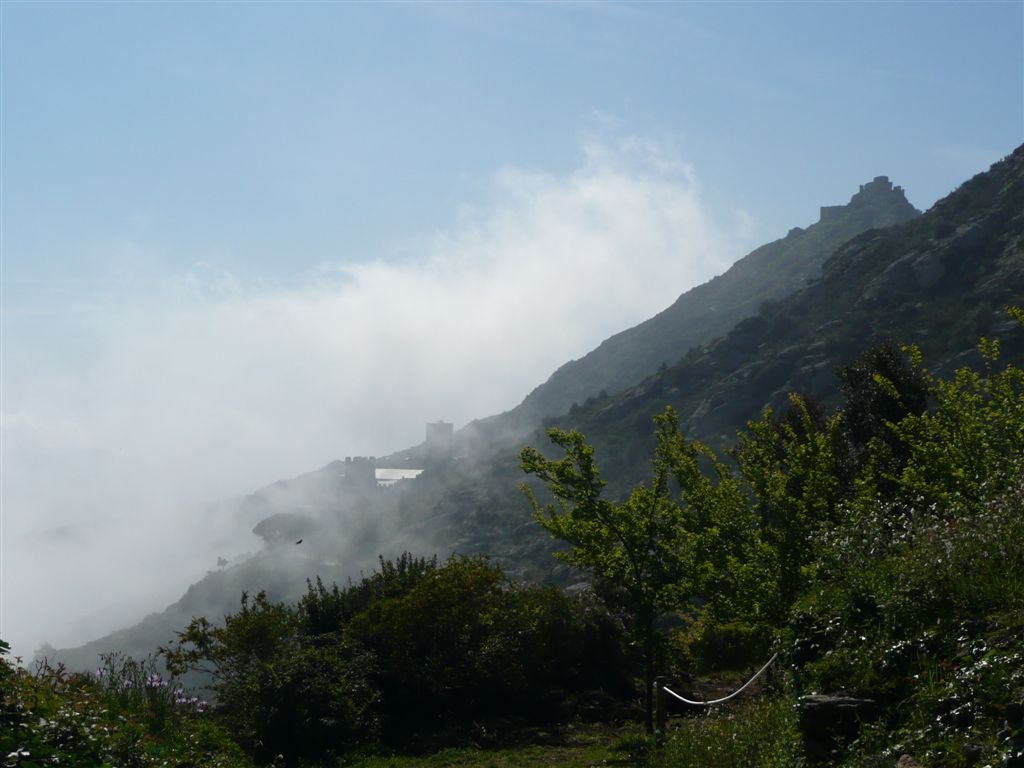
Visiting El Recinte Fortificat: Hours, Tickets, and Travel Tips
Published Date: 22/07/2024
Introduction
El Recinte Fortificat, also known as the Citadel of Roses, stands as a monumental testament to the rich historical and cultural tapestry of Roses, a charming town located in the province of Girona, Catalonia, Spain. This fortress, with its origins tracing back to the 4th century BC, encapsulates layers of history from the Greek and Roman settlements to medieval and Renaissance fortifications. Renowned for its strategic significance and architectural brilliance, El Recinte Fortificat is a beacon for history enthusiasts and casual tourists alike, offering a comprehensive glimpse into the region’s storied past. This guide aims to provide an in-depth exploration of El Recinte Fortificat, including its historical significance, visitor tips, and the vibrant cultural events that continue to breathe life into this ancient stronghold (Roses Tourism website).
Table of Contents
- Introduction
- History of El Recinte Fortificat
- Visitor Information
- Special Events and Cultural Activities
- Conclusion
- FAQ
History of El Recinte Fortificat
Origins and Early History
The origins of El Recinte Fortificat date back to the 4th century BC when it was first established by the Greeks from the colony of Rhode. This early settlement was strategically positioned due to its proximity to the Mediterranean Sea, which facilitated trade and defense. The Greeks constructed a small fortified town, which later became a significant trading hub in the region.
Roman Influence
In the 2nd century BC, the Romans conquered the Greek settlement and integrated it into the Roman Empire. The Romans expanded the fortifications and developed the town further, constructing public buildings, roads, and aqueducts. The Roman influence is evident in the architectural remains found within the Citadel, including the remnants of a Roman villa and a necropolis. The town of Roses flourished under Roman rule, becoming an important center for commerce and culture.
Medieval Period
During the medieval period, the Citadel underwent significant changes. In the 8th century, the area was invaded by the Moors, who occupied the region for several centuries. The Moors left their mark on the architecture and culture of Roses, contributing to the town’s rich historical tapestry. By the 10th century, the region was reconquered by the Franks, and Roses became part of the County of Empúries. The medieval fortifications were reinforced, and a new castle was built within the Citadel to protect against potential invasions.
Renaissance and Modernization
The most significant transformation of El Recinte Fortificat occurred in the 16th century during the reign of King Charles I of Spain (also known as Charles V, Holy Roman Emperor). In response to the increasing threat of piracy and Ottoman incursions, Charles I ordered the construction of a modern bastioned fortress. The new fortifications were designed by the Italian military engineer, Giovanni Battista Calvi, and included thick walls, bastions, and a moat. The Renaissance fortress was completed in 1543 and became a key defensive structure along the Mediterranean coast.
The War of Spanish Succession
In the early 18th century, the Citadel played a crucial role during the War of Spanish Succession (1701-1714). The fortress was besieged multiple times by both Bourbon and Habsburg forces. Despite the extensive fortifications, the Citadel suffered significant damage during the conflict. After the war, the fortress was repaired and continued to serve as a military stronghold.
Decline and Abandonment
By the 19th century, the strategic importance of El Recinte Fortificat had diminished. Advances in military technology and changes in geopolitical dynamics rendered the fortress obsolete. In 1814, during the Peninsular War, the Citadel was partially destroyed by French troops. Following this, the fortress was abandoned and fell into disrepair. The site remained neglected for much of the 19th and early 20th centuries.
Archaeological Excavations and Restoration
In the mid-20th century, efforts were made to preserve and restore El Recinte Fortificat. Archaeological excavations began in the 1940s, uncovering significant historical artifacts and structures from various periods of the Citadel’s history. The restoration work aimed to stabilize the ruins and make the site accessible to the public. Today, the Citadel is a protected historical monument and an open-air museum, offering visitors a glimpse into the rich history of Roses.
Visitor Information
Visiting Hours and Tickets
El Recinte Fortificat is open to visitors year-round. The visiting hours vary depending on the season:
- Summer (June to September): 10:00 AM - 8:00 PM
- Winter (October to May): 10:00 AM - 6:00 PM
Ticket prices are as follows:
- Adults: €5
- Children (under 12): Free
- Seniors (over 65): €3
Travel Tips
- Getting There: The Citadel is located in the town of Roses, easily accessible by car or public transport. There is ample parking available near the site.
- Guided Tours: Guided tours are available and highly recommended for those interested in a more in-depth understanding of the site’s history.
- Accessibility: The site is partially accessible to visitors with reduced mobility. Some areas may be challenging to navigate due to uneven terrain.
- Nearby Attractions: While visiting El Recinte Fortificat, consider exploring other historical sites in Roses, such as the Monastery of Sant Pere de Rodes and the Castle of the Trinitat.
Special Events and Cultural Activities
El Recinte Fortificat hosts various cultural events, exhibitions, and educational programs throughout the year. These events provide a unique opportunity to experience the vibrant history and culture of Roses. Be sure to check the official Roses Tourism website for the latest information on upcoming events and activities.
Conclusion
El Recinte Fortificat is not only a testament to the historical and architectural evolution of Roses but also a symbol of the town’s resilience and cultural heritage. The site attracts thousands of visitors each year, who come to explore the ancient ruins, learn about the history of the region, and enjoy the scenic views of the Mediterranean Sea. The Citadel also hosts various cultural events, exhibitions, and educational programs, contributing to the local community and economy.
FAQ
Q: What are the visiting hours for El Recinte Fortificat? A: The visiting hours are from 10:00 AM to 8:00 PM during summer (June to September) and from 10:00 AM to 6:00 PM during winter (October to May).
Q: How much are the tickets to visit El Recinte Fortificat? A: Ticket prices are €5 for adults, free for children under 12, and €3 for seniors over 65.
Q: Are guided tours available? A: Yes, guided tours are available and recommended for a more comprehensive understanding of the site’s history.
Q: Is El Recinte Fortificat accessible to visitors with reduced mobility? A: The site is partially accessible. Some areas may be challenging due to uneven terrain.
For more detailed information on the history and significance of El Recinte Fortificat, you can visit the official Roses Tourism website.
Call to Action
Don’t miss out on the opportunity to explore El Recinte Fortificat and its rich history. Plan your visit today and immerse yourself in the cultural heritage of Roses. Follow us on social media for more updates and travel tips!
References
- Explore the Rich History and Visitor Information of El Recinte Fortificat in Roses, Spain, 2024, Roses Tourism website
